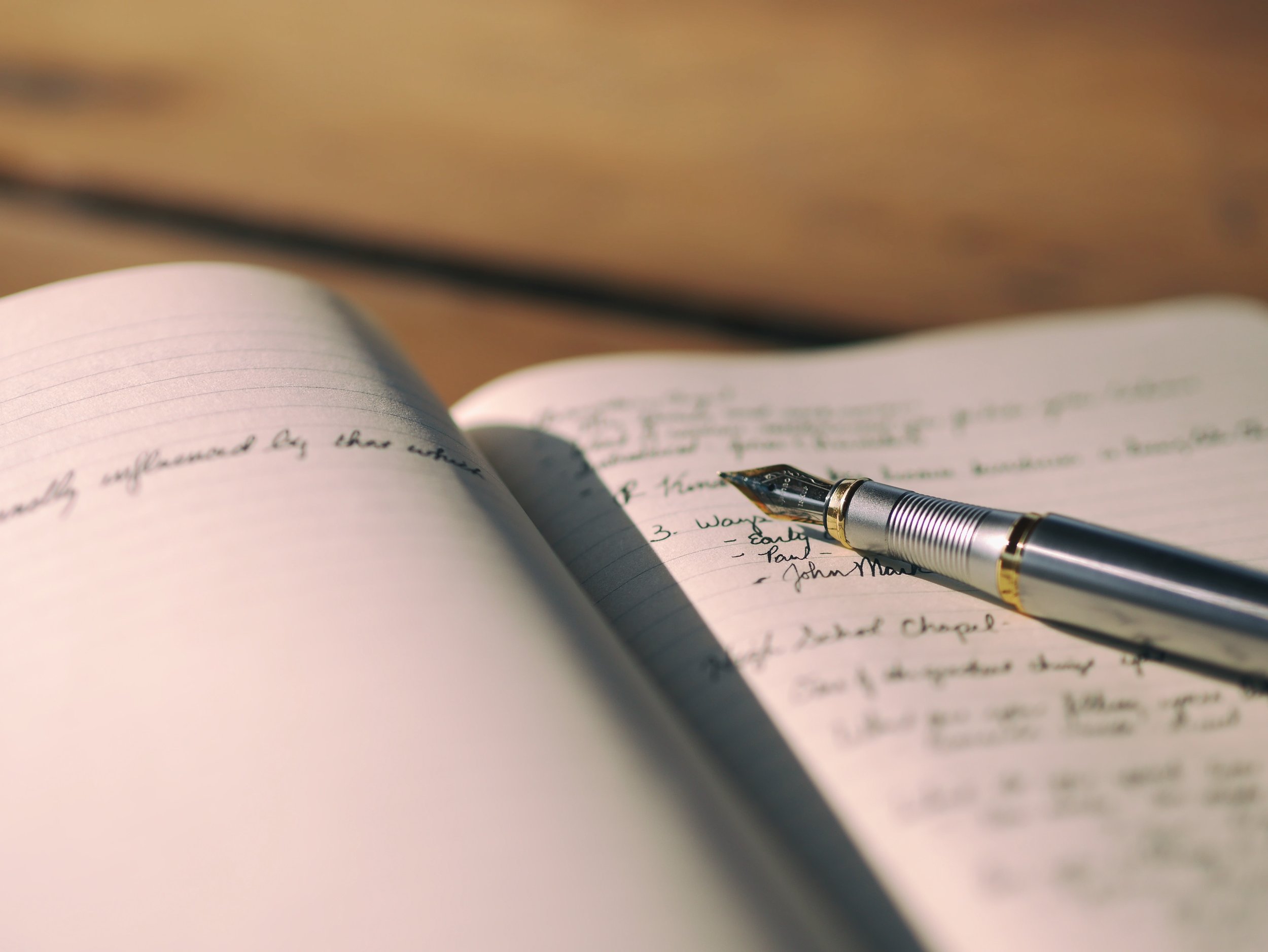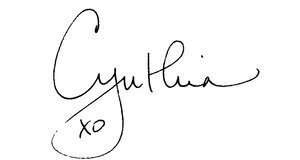Thought-Collecting
Photo by Aaron Burden
“My journals are not written for others, nor do I usually look at them myself,
but they are a special, indispensable form of talking to myself.“ -Oliver Sacks, MD 2015“Life piles up so fast that I have no time to write down the equally fast rising
mound of reflections.“ -Virginia Woolf 1919
I found a small stack of my mother’s journals after her death in 1992, and they were very much like mine. Each began with a diligent promise to notate every day, almost immediately a few days skipped, then self-recrimination for not only not writing daily, but also what drivel was being captured. And then she’d buy a new notebook, and fill up the first ten pages, then blank. Moi aussi. I guess we both kept re-starting because we believed it was a portal to something good, a doorway to become better versions of ourselves. I admire the journal habits of others, especially the greats: Samuel Johnson (via Boswell), Samuel Pepys (don’t you love how it’s pronounced peeps?!), and Benjamin Franklin’s musings are still fresh bites of encouragement. I frequently re-read the Stoics, and even earlier, Plato’s capturing of Socrates lessons. And wowee! Anaïs Nin certainly rocked some ink.
A dear and super-creative friend revealed that in reviewing years of her start-stop journals, she apparently thought of herself as “a rotting piece of meat.” This was at a workshop where we were encouraged to “mine your journals for gold,” capturing salient moments, names, and key information that had escaped memory. Mine? I used my writing time to decry what a hassle life could be, and how I couldn’t stick to a diet.
Two significant events changed all that for me. In 1999 I finally cracked open The Artist’s Way, desperate for a jumpstart on a stalled project: I simply could not imagine an intro to my recording, Embracing True Prosperity. And thus, I joined the ranks of millions who claimed that “morning pages” transformed their relationship to writing down their thoughts. Suffering my way past the first page of bummerjournaling with a focus on my failure-to-thrive, I was stunned to hear a sweeter voice, one that experienced gratitude and desired adventure, and took delight in events. I began recalling dreams. After a month of faithfully, addictively, filling three blank pages, one 4AM I was startled awake by the phrase, “I believe that each of us is born holding a dream seed of a remarkable life, a life of both purpose and pleasure.” This did not come from previous thinking or listening. Pure muse. I was able to complete my project.
I couldn't have written The Courage to Trust if I hadn’t embraced Julia Cameron’s story of sobriety and redemption via creative expression. Because she shared so intimately, it helped dissolve my own shame and limited thinking about my ability to write with intention to publish. I continued this habit for a couple of years. It helped me lose forty pounds while writing down my food for Weight Watchers. Always having a journal handy facilitates positive change, no doubt.
But when we were forced to move, the habit faded. I understand now it was because I lost my writing place, the go-to first think (sic) in the morning didn’t move with me. Then in 2019, while on a long drive, an NPR podcast described The Five Minute Journal (Alex Kahn), a commitment to write five minutes each day, with a structured flow, while water is heating, or before a shower. Perhaps best before you open up to the rest of the world, but no rules about that. I trusted the source of the recommendation for this process, but my own research into why it works has been helpful to keep this going Every. Single. Day. for more than three years. I’ve adapted it into this format:
(+) Write down at least three current experiences/feelings of pure gratitude. The more immediate the better: the taste of your coffee, the way the sun is hitting a tree outside, rain, or the relief of a resolved conflict. Simply noticing the flowers on the table, or how much you love your pet evokes FEELING genuine gratitude.
(-) Name at least three unpleasant, frustrating, worrying thoughts and concerns. No size requirements: from a papercut to bankruptcy, if it is occupying brain space, it goes onto the paper. DISCHARGING discomfort is the intention.
(!) Consider what you want to accomplish today: at least three meaningful tasks that would make your life easier, more fulfilling if you got to them. Some of them are “big frogs” you want to choke down first thing, and others are petty annoyances like things you keep forgetting to buy, but they will stall your creative flow. COMMITMENT is all.
(✩) Identify at least three tasks you accomplished in the previous day or so. A scary phone call, reconciled bank statement, paid down a credit card, sent a thank you note, walked a mile every day in the past week. ACKNOWLEDGMENT of achievement is the intention.
By starting with gratitude, we activate the calming and wise part of the brain/body. We can then embrace brief hits of genuine concern without getting lost in the weeds of bummerjournaling. From there, we are more creative and honest about what is essential to do. And the final bit, the pat on the back? We remember that we actually do get things done, and can keep our word to ourselves.
Once I have done this process, my thoughts are fresh and new. Then the page often seduces me back into discovering what else is going on, capturing Virginia’s fast rising mound of reflections, just the way The Morning Pages promised. (I make the notation “2nd page for no good reason” when I keep writing, thereby reducing my expectations to zero, and opening the floodgates for something new to show up.) Whether you create a page of bullet points and call it good, or you continue to explore what comes up from your freshly scrubbed brain, you’ll find a connection of self to Self, and often your Muse, or even the Divine.
Click here to purchase my book, The Courage to Trust.
Click here to purchase the audiobook of The Courage to Trust.
Click here to purchase my 90-minute guided visualization, Embracing True Prosperity.

